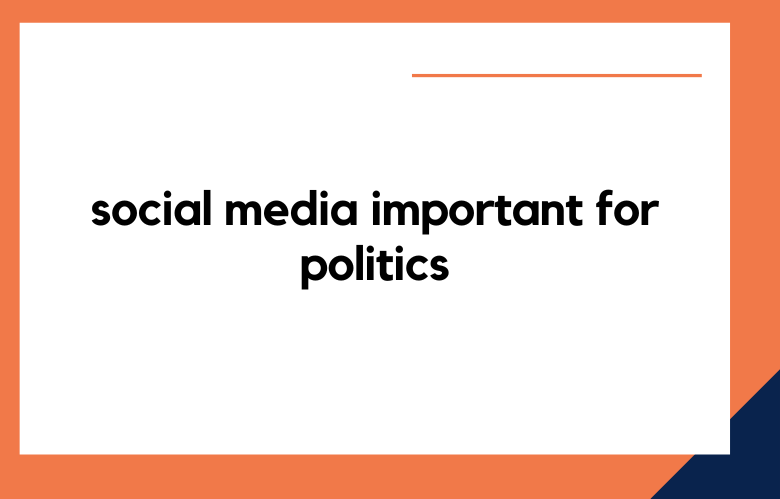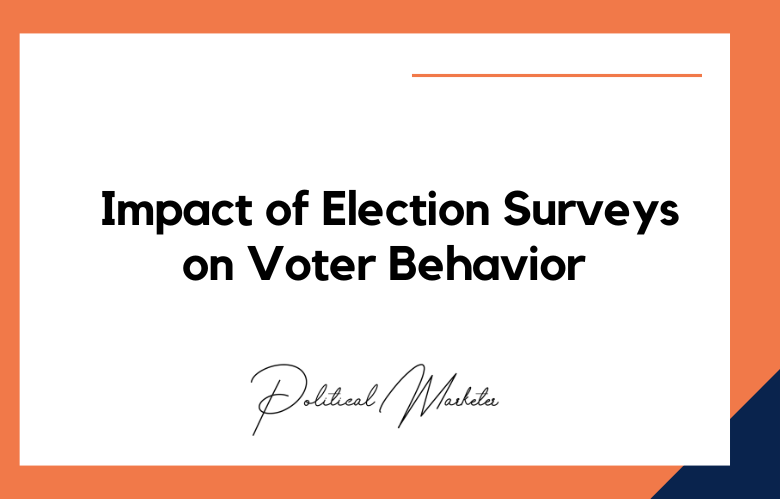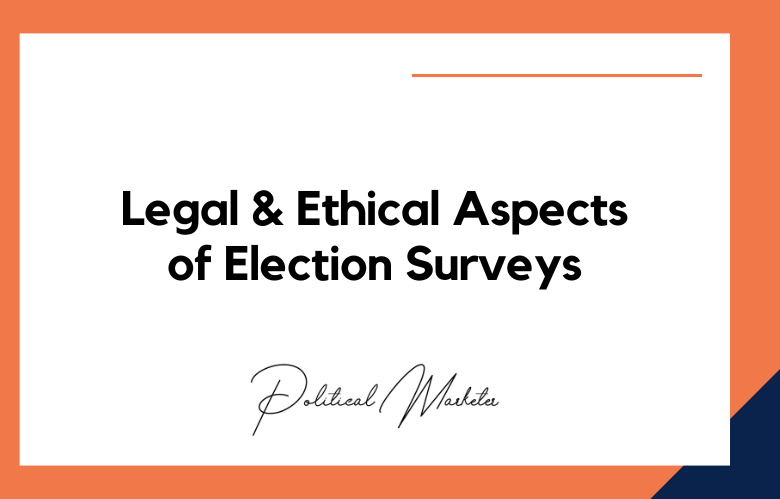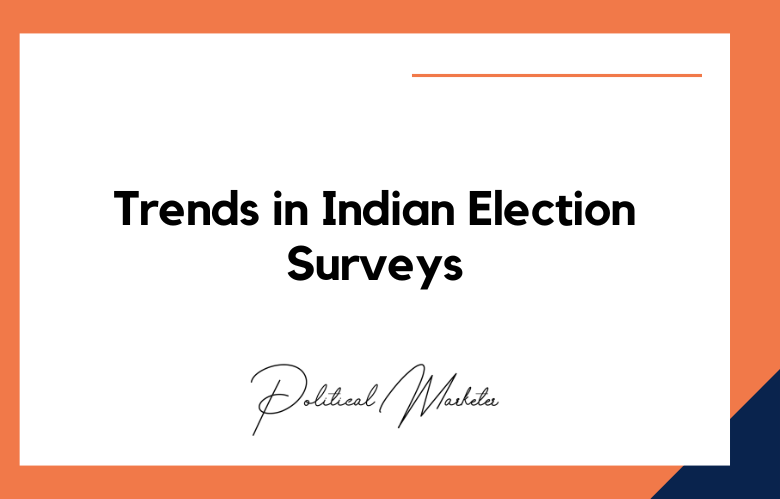In the past decade, social media’s influence on global events has skyrocketed, and its impact on politics has been particularly significant. From political campaigns to international affairs, politicians have been harnessing the power of social media to reach more voters, engage with constituents, and amplify their messages. In this post, we’ll explore why social media is so crucial for the future of politics, its advantages to politicians, and how it’s transforming how we think about government and democracy.
More Accessible to the Public:
One of the most apparent reasons social media is crucial for politics is that it makes politicians more accessible to the public. Unlike traditional channels like TV, newspapers, or billboards, where there is little interaction, social media allows politicians and voters to engage in online discussions. It also facilitates a direct dialogue between politicians and voters, enabling government officials to listen and respond to their constituents’ needs.
More Informative Than Traditional Media:
Another advantage of social media over traditional media is that it provides voters with vast information. Candidates can share their insights on policy on various channels, such as Facebook, Twitter, and Instagram. In addition, social media provides room for journalists, political experts, and other commentators to weigh in on the issues. This enables voters to form their opinions on the problems quickly.
Cost-Effective:
Running a political campaign usually costs significant money, and social media has become a cost-effective way to reach voters. Targeted online advertising, for instance, is beneficial when politicians are trying to get a specific set of voters. By utilizing social media, politicians don’t have to pay for expensive media spots on TV or radio or invest in traditional advertising methods.
More Extensive Reach:
Social media is also much more effective at reaching a broader audience. With the ability to target particular audiences, politicians can reach demographics that traditional media can’t cater to. Social media also allows politicians to communicate more personalized messages to voters, making connecting with them emotionally easier.
Citizen Engagement:
Lastly, social media provides an excellent platform for citizen engagement. Through social media channels, people can quickly and easily organize selective campaigns. These campaigns often go viral through social media networks and can lead to tangible policy outcomes, such as the response to the #MeToo movement. Drives like these would be easier to organize with social media.
The Political Power Shift: How Social Media is Shaping Politics
Social media has radically transformed the way people engage in politics. The emergence of social media platforms such as Twitter, Facebook, Instagram, and Snapchat has revolutionized how people communicate and redefine how politics is practiced. Social media, as a tool for political campaigning, has given citizens more power to shape political discourse and influence decision-makers.
One of the most significant impacts of social media on politics is that it has given an equal platform to all voices, including those previously marginalized in media coverage.
This has facilitated greater political participation and civic engagement from all walks of life. Social media platforms have also enabled politicians to interact directly with their constituents, eliminating dependence on traditional media and gatekeepers for disseminating information.
From Like to Vote: Social Media’s Influence on Political Engagement
With the rise of social media, people now have a new platform to express their opinions and engage in political conversations. Social media has transformed how politicians interact with the public, making communication and engagement more accessible and immediate.
In the contemporary context, likes, shares, and comments on social media are indicators of engagement and political participation. However, the actual effectiveness of social media in transforming online engagement into real-life participation remains an area of debate.
It is worth examining relevant facts and data to delve deeper into social media’s influence on political engagement. According to a study by the Pew Research Center, 67% of Americans reported that they got their news from social media. The same survey indicated that nearly half of all Americans had been exposed on social media to political beliefs they disagreed with.
Tweeting for Change: Unleashing the Political Potential of Social Media
Social media has become one of the most crucial elements in modern communication and has revolutionized political activism. As a tool for mass communication, social media is a platform that connects people from around the world and empowers movements to attain significant social and political change.
A prime example of the political potential of social media is the Arab Spring. Social media platforms played a crucial role in providing a platform for activists to spread their message and organize protests.
The impact was significant, leading to the removal of authoritarian leaders in countries like Tunisia and Egypt. This event sparked a wave of political uprisings across the Middle East and North Africa, marking social media’s entrance into political activism.
The Battle for the Timeline: How Social Media is Transforming Political Campaigning
The rise of social media platforms such as Facebook, Twitter, and Instagram has transformed how political campaigns are conducted. In today’s world, more is needed to rely on traditional media outlets and door-to-door canvassing. Social media has emerged as a crucial tool for candidates to engage with voters, build their brand, and get their message across.
One significant advantage of social media is that it allows candidates to bypass mainstream media’s editorial filters, which often focus on sensational stories rather than substantive policy discussions. With social media, candidates can share their views and connect with voters directly.
Breaking the News: The Role of Social Media in Political Journalism
As the world becomes more interconnected and digital, social media has played an increasingly significant role in disseminating news, particularly political journalism. The rise of social media platforms like Twitter, Facebook, and Instagram has changed how journalists break news and the speed at which it travels.
One of the most significant benefits of social media in political journalism is that it allows news to be delivered in real-time. Gone are the days when cable news networks were the only source of breaking news. Nowadays, Twitter has become an essential source for political journalists to break news, share information, offer commentary and analysis on political events, and engage with their audiences around critical issues.
Conclusion:
In the Age of Social Media, where people of every demographic use multiple platforms like Twitter, Facebook, Instagram, and LinkedIn, politicians can’t consider using it to connect with their constituents an afterthought. Social media provides many benefits, from cost-effectiveness and personalized messaging to direct engagement and effectiveness.
As we move into the future, social media will continue to shape political campaigns and engagement and become even more important in our democracy’s effectiveness. Understanding and utilizing social media for politics is essential for politicians to succeed and connect genuinely with constituents.
Call: +91 9848321284
Email: [email protected]
Frequently Asked Questions (FAQs)
Why is social media important in modern politics?
Social media enables direct, real-time communication between politicians and the public, bypassing traditional media filters and fostering engagement.
How does social media help political campaigns?
It allows targeted outreach, cost-effective advertising, voter mobilization, instant feedback, and rapid message amplification.
Can social media influence election outcomes?
Yes. Platforms like Facebook and Twitter can sway public opinion, increase voter turnout, and even trigger political movements.
Which social media platforms are most used in politics?
Facebook, Twitter, Instagram, YouTube, and increasingly TikTok and WhatsApp, depending on regional demographics and election strategies.
How do politicians use social media during elections?
They use it to share manifestos, rally supporters, respond to controversies, conduct live Q&As, and launch viral content.
What are the benefits of social media for political leaders?
It builds visibility, shapes public image, enables narrative control, and helps humanize leaders through relatable content.
How does social media empower voters?
It provides access to diverse viewpoints, candidate information, fact-checking resources, and platforms for civic engagement.
Can social media help grassroots political movements?
Absolutely. It enables decentralized organizing, hashtag activism, and rapid mobilization of supporters for protests or campaigns.
What role does social media play in political debates?
It allows live commentary, public reaction, and real-time analysis, often influencing public perception more than the debate itself.
How is political advertising managed on social media?
Most platforms require ad transparency, targeting disclosures, and identity verification for political advertisers to prevent manipulation.
How does misinformation spread through political social media?
False narratives and deepfakes can go viral quickly, especially in echo chambers. Algorithms may inadvertently promote sensational content.
How do social media influencers affect politics?
Influencers can mobilize followers, advocate for candidates, simplify policy discussions, and shape youth opinion through peer influence.
What is the role of hashtags in political campaigns?
Hashtags like #VoteForChange or #JusticeForXYZ drive visibility, create trends, and unite users under shared causes or movements.
Can social media increase political polarization?
Yes. Filter bubbles and targeted content can reinforce existing beliefs, reduce exposure to diverse views, and intensify ideological divides.
How do governments use social media for governance?
Beyond campaigns, governments use it for public service announcements, emergency communication, and citizen feedback collection.
What tools do political parties use to manage social media?
They use tools like Hootsuite, Sprout Social, Meta Business Suite, and data analytics dashboards for scheduling, monitoring, and targeting.
Can social media be used for political crisis management?
Yes. It’s a vital channel for rapid response, clarification, damage control, and reshaping public narratives during crises.
How does youth engagement increase through social media?
Social media speaks the language of youth—memes, reels, short videos—and creates interactive, low-barrier entry points into politics.
Is social media regulated in political contexts?
Yes. Election commissions and platform policies enforce rules on spending, hate speech, misinformation, and ad transparency.
What is the future of social media in politics?
It includes deeper AI integration, personalized voter outreach, real-time sentiment analysis, virtual campaign rallies, and immersive political experiences.










